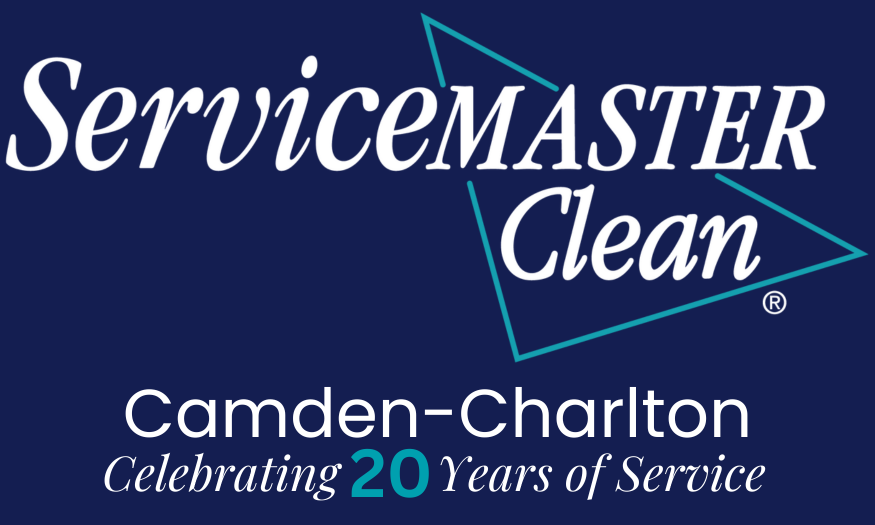Emergency Fire and Smoke Restoration and
Damage Clean-Up
Emergency Fire and Smoke Restoration and
24/7 Emergency Fire, Smoke & Damage Restoration in Camden-CharltonEmergency Fire and
Smoke Restoration and
Damage Clean-Up
Camden & Charlton Counties
Emergency Fire and Smoke Restoration & Damage Clean-Up
Serving Camden & Charlton County, Georgia
Professional Fire and Smoke Restoration for Homes & Businesses in St. Marys, Kingsland, Kings Bay & Surrounding Areas
When disaster strikes, ServiceMaster of Camden-Charlton is here to help. We specialize in fire and smoke damage restoration, offering fast and effective cleanup services to help you recover quickly. Located in Kingsland, Georgia, we serve both residential and commercial properties, ensuring that your home or business is restored to its pre-loss condition.
SERVICES
Full-Service Emergency Fire and Smoke Restoration & Damage Clean-Up
We provide comprehensive fire and smoke damage restoration services, including:
What We Offer:
24/7 Emergency Response
Immediate assistance when you need it most
Emergency Pre-Cleaning
Preventing further damage before restoration begins
Soot & Smoke Removal
Thorough cleaning to eliminate residue and odors
Complete Structural Cleaning
Walls, ceilings, floors, and all affected surfaces
Contents & Personal Property Cleaning
Salvaging valuable belongings
Rapid Response, 24/7 Availability
Fire damage worsens with time; we act fast.
Certified & Experienced Restoration Specialists
Experts trained in fire and smoke restoration.
Advanced Cleaning Technology
Industry-leading equipment and eco-friendly solutions.
Seamless Insurance Claim Assistance
We work with all major insurance providers.
Locally Owned & Operated
Trusted in the community since 2005.
Why Choose ServiceMaster of Camden-Charlton?
Here’s why businesses across Camden & Charlton County trust us for their commercial carpet cleaning needs:
Improving Indoor Air Quality
Your carpets do more than enhance aesthetic appeal—they also affect air quality. Over time, dust, allergens, and bacteria accumulate in fibers, potentially causing discomfort for employees and customers. That’s where we come in. Our specialized cleaning methods not only remove stubborn dirt trapped within the carpets but also contribute to better indoor air quality by reducing allergens and pollutants. Create a healthier and more comfortable environment with ServiceMaster CCC.
Excellence You Can Trust
Our 4-Step Fire and Smoke Restoration Process
Step 1: Emergency Response & Inspection
Immediate response to assess damage and prevent further issues.
Step 2: Soot & Smoke Removal
Advanced techniques to remove harmful residues and odors.
Step 3: Structural Cleaning & Restoration
Deep cleaning of walls, ceilings, floors, and other surfaces.
Step 4: Personal Property & Content Cleaning
Specialized cleaning and deodorization of belongings.
Step 5: Deodorization & Final Inspection
Ensuring your home or business is safe, fresh, and fully restored.
The importance
The Importance of Professional Fire Damage Cleanup
Added Benefits:
Health & Safety
Fire damage leaves behind toxins that require professional removal.
Preventing Long-Term Damage
Delaying restoration can lead to costly repairs.
Proper Smoke & Odor Removal
DIY methods often fail to eliminate deep-seated smoke smells.
Insurance Compliance
Many policies require professional restoration to process claims.
TESTIMONIALS
Proudly Recognized by the Community
LOCATIONS
Proudly Serving Camden & Charlton County, Georgia
At ServiceMaster Camden, we are proud to serve both commercial businesses and homeowners in the following areas:
We proudly serve Kingsland, St. Marys, Woodbine, Kings Bay, Folkston, Homeland, Waverly, White Oak, Browntown, Camden County & Charlton County, GA.
Frequently Asked Questions
Immediately! The longer soot and smoke sit on surfaces, the more damage occurs. We offer 24/7 emergency service to start the process quickly.
Yes! We are an approved vendor for most insurance providers and help streamline the claims process.
Absolutely! We use advanced deodorization techniques to eliminate even the toughest smoke odors.
We proudly serve Kingsland, St. Marys, Woodbine, Kings Bay, Folkston, Homeland, Waverly, White Oak, Browntown, Camden County & Charlton County, GA.
Get ReadyToday!Today!
At ServiceMaster Camden-Charlton, we don’t just clean carpets—we build relationships grounded in trust, quality, and care.
Get In Touch With Us!
Copyright © 2025 ServiceMaster Clean Camden Charlton. All Rights Reserved.

